
By Lily Okech
As I pulled up my phone and searched for a Whole Foods store, I quickly found the address in West Des Moines. After parking my car, I entered the store and grabbed some Japanese purple sweet potatoes and yellow potatoes, along with freshly made peanut butter. As I made my way to the cashier, I noticed the workers looking at me with surprise, likely due to my attire—a long dress and slippers, with my Africa head wrap. Ignoring their stares, I placed my items on the belt, but the cashier seemed a bit confused as she rang up my purchases. After paying with my debit card, I received my receipt and headed out, feeling puzzled by the lingering looks from other shoppers. It soon dawned on me that people like me, immigrants and refugees, are not commonly seen shopping at Whole Foods; rather, they tend to frequent Walmart or local ethnic stores. This realization underscored the lack of familiarity and connection among Iowa’s diverse communities, despite its history of welcoming refugees since 1975. Yet, amidst this disparity, the striking similarities in environment, kindness, farming practices, livestock, and foods between Iowa and Uganda continue to captivate me, highlighting the profound cultural symmetry shared between these seemingly distinct places.
Three months prior, during our arrival in Des Moines at 11:35 P.M on March 12, 2012, we were greeted by a gentle breeze and a small, peaceful airport. Stepping outside, I felt the calm wind on my face and an immediate sense of belonging. We reached our cousin’s house by midnight, observing the downtown area with its tallest buildings nearby. The following morning, I awoke to birdsong and ventured outside to a breathtaking scene of clear skies and fresh air. I was close to downtown, and I noticed the sign for Oakridge Housing Apartments. Despite the early warmth, I reflected on the still-dry conditions in Utah. I came to America in 2005 with my mom and five siblings; our first state was Idaho, where I lived for about two years before moving to Utah for my husband. I spent about four years in Utah before finally moving to Iowa. This warm feeling was unexpected in Iowa, where I see children play outside early in the morning, mothers are cleaning their front doors. Historically, Iowa was the first state in America to welcome refugees in 1975, a legacy stemming from former Governor Robert Ray‘s response to President Gerald Ford’s call to offer resettlement to refugees from South Asia.
What I know from history is that around 1975, Governor Ray answered the call to open Iowa’s doors to help resettle refugees. This program brought hope for people like me; my parents are originally from South Sudan, and I was born in a refugee camp in Uganda. Back in 1975, America allowed refugees from Asia to come in, making Iowa the first state in America for resettlement according to immigration to Iowa, giving people like me a chance to live here. I spent 15 years in a refugee camp without ever imagining I’d end up in America. When my sister came here in 1999 and told us she’d bring us to America too, we were all so excited and hopeful. I didn’t know much about America, but I imagined it as a place where the streets were paved with gold and fruit trees lined every road. I imagined being able to pick fresh mangoes and passion fruit whenever I wanted. My sister even mentioned I wouldn’t have to gather firewood for cooking anymore, which sounded amazing. My imagination of America was a place where everything was golden, and there was no soil—just abundance everywhere. Now, having a garden in Iowa surprises me every summer when we plant our vegetables. It reminds me that the world is the same, whether you’re in Africa or America.
The similarities between life in Des Moines and Uganda are striking, particularly in the beauty of community and the warmth of welcome. Here in Iowa, there’s a saying, “Iowa nice”—where the community welcomes people with open arms. This reminds me of back in Africa, where we said, “It takes a village to raise a child.” In both places, communities always come together to support one another, welcoming people with open arms and ensuring they are well taken care of. The environment, too, evokes a sense of nostalgia and connection. Driving through the countryside during the summer, surrounded by endless fields of corn and soybeans, and catching glimpses of livestock roaming freely, reminds me of Uganda. Especially when I’m driving down Kansas City, the area reminds me so much of northern Uganda, where I am from. The beauty of the hills, the trees, and the curves of the highway all resemble the landscape of Acholi land, where cities like Kitgum and Gulu are located. It’s like I’m driving from Kitgum to Gulu all over again, and it fills me with a sense of familiarity and belonging.
For some people, going to the Saturday market might seem ordinary, but for me, it’s a comforting place where I feel at home. Buying fresh vegetables straight from the garden and enjoying freshly cooked food reminds me of helping my mother cook and sell food in the market back in Uganda. Interestingly, our market days in Uganda were also on Saturdays. The true beauty of the community shines through when organizations like the Refugees Agriculture Partnership Program (RAPP) step in to bridge the gap between refugees and American citizens through a shared love for agriculture. During the summer of 2012, my cousin suggested a visit to the downtown market and the vibrant array of African vegetables stirred memories of home, igniting a sense of warmth and familiarity within me. The bustling scene, reminiscent of markets in Uganda, with tents erected and goods proudly displayed, filled the air with enticing aromas. Witnessing vendors showcasing their produce and engaging with customers, I felt deeply grateful for RAPP’s role in empowering refugees and fostering understanding across cultural divides. When I saw so many immigrants selling those vegetables, it further emphasized the sense of community and resilience prevailing amidst the hustle and bustle, reminding us that despite our different journeys, the shared experience of farming transcends borders.
I live in Pleasant Hill, and I have a garden in Altoona. Driving down those hills reminds me of home, although we walked to the garden back in Uganda, looking at the fields and trees. Here in Iowa, the world seems equally created, especially when it comes down to the soil—the richness of the dark soils in Iowa is akin to the richness of the soil we have in Uganda. This brings me to my experience in Maxwell, Iowa, which revealed the depth of its kindness. As I sought out fresh meat from local farms, my request for a specific cut baffled the locker attendant, highlighting a cultural divide. Upon demonstrating the African method of cutting meat, the owner invited me to show them the process with open arms. Walking into the place with a happy greeting for the workers, we shared laughter and camaraderie, finding common ground despite our differences. The owner exclaimed, “Wow, this is my first time meeting a real African!” And you don’t mind if you didn’t wear a glove, we laughed so hard, and at that moment, nobody even noticed our different skin colors. He said, “Give me a minute,” went to the back of the store, and came back with a lot of gifts for me—things like cheese, deer meat, and smoked meat that symbolized our shared humanity, reminiscent of the hospitality I knew in Africa. It reminded me that regardless of origin, our capacity for appreciation and understanding unites us as human beings. Emphasizing the importance of educating ourselves can bring about a better understanding and connection.
In reflecting on my journey from Uganda to Iowa, I am reminded of the beauty and resilience of the human spirit. Despite the miles that separate us and the differences that define us, there exists a shared thread of kindness, understanding, and connection that transcends borders and cultures. Through the simple act of tending to a garden or sharing a meal, we find common ground and celebrate our shared humanity. As I continue to navigate life in Iowa, I carry with me the lessons of compassion and acceptance that I have learned along the way. May we all strive to embrace diversity, foster understanding, and build bridges of empathy, for it is through unity and solidarity that we create a brighter and more inclusive future for all.
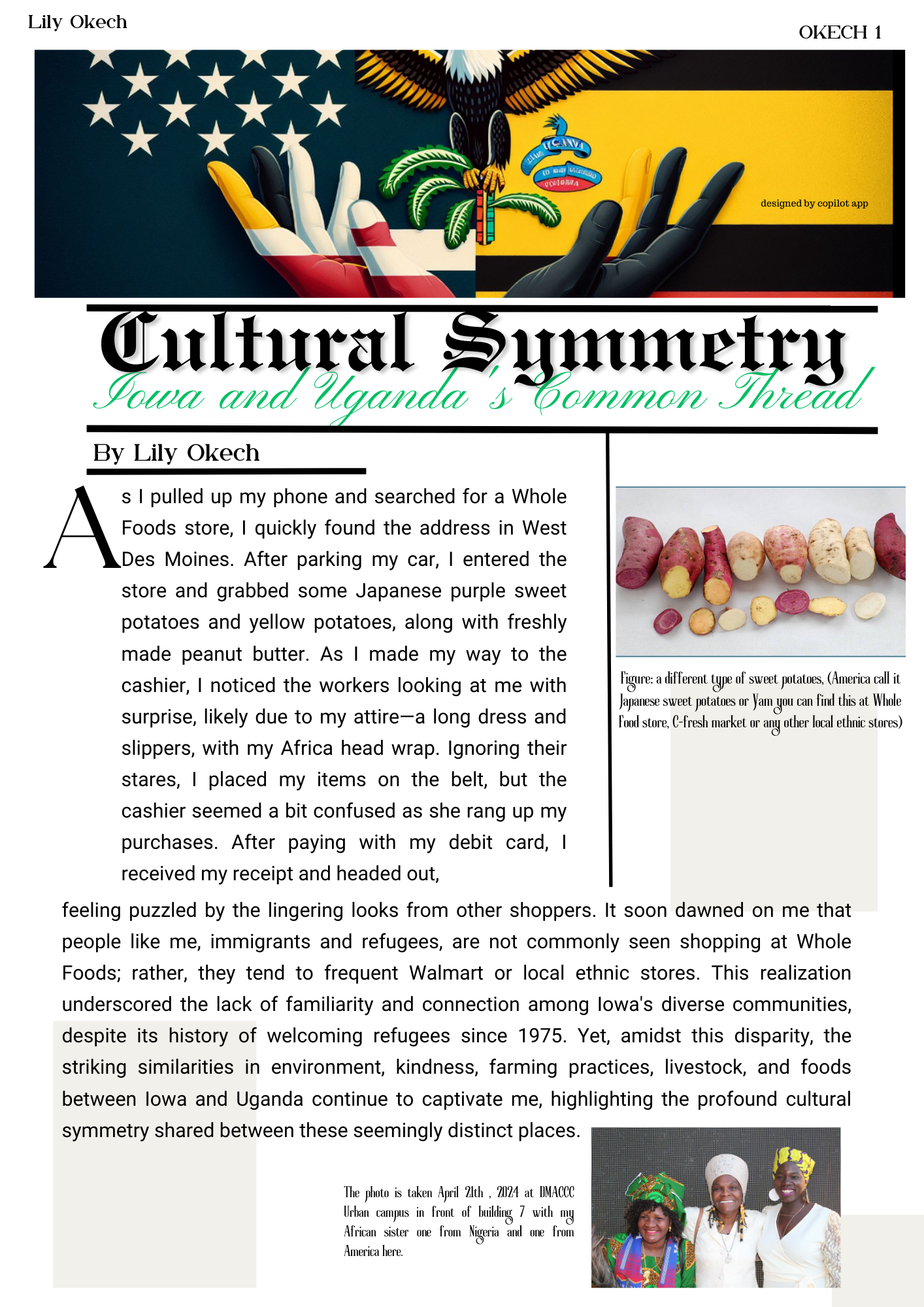
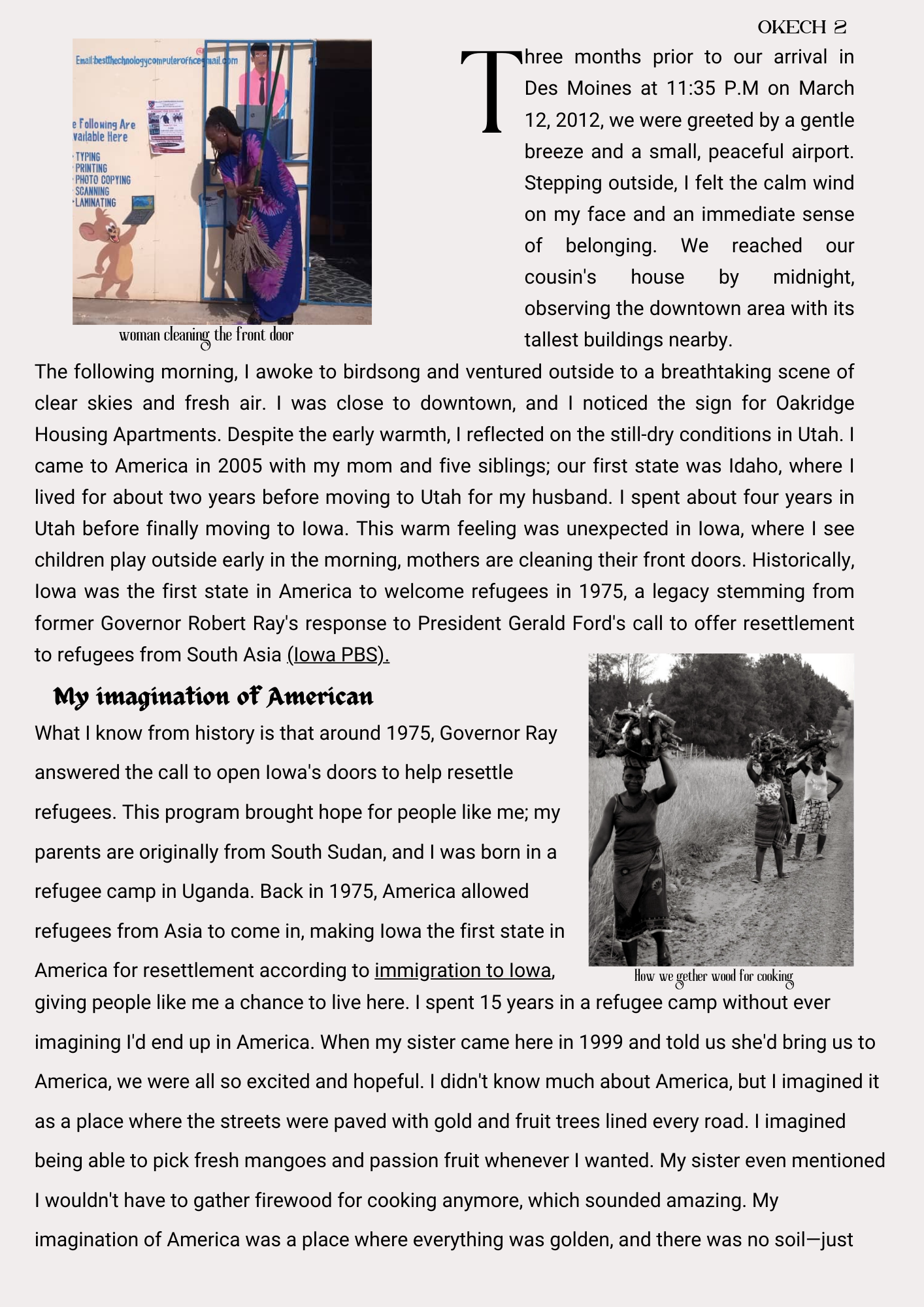
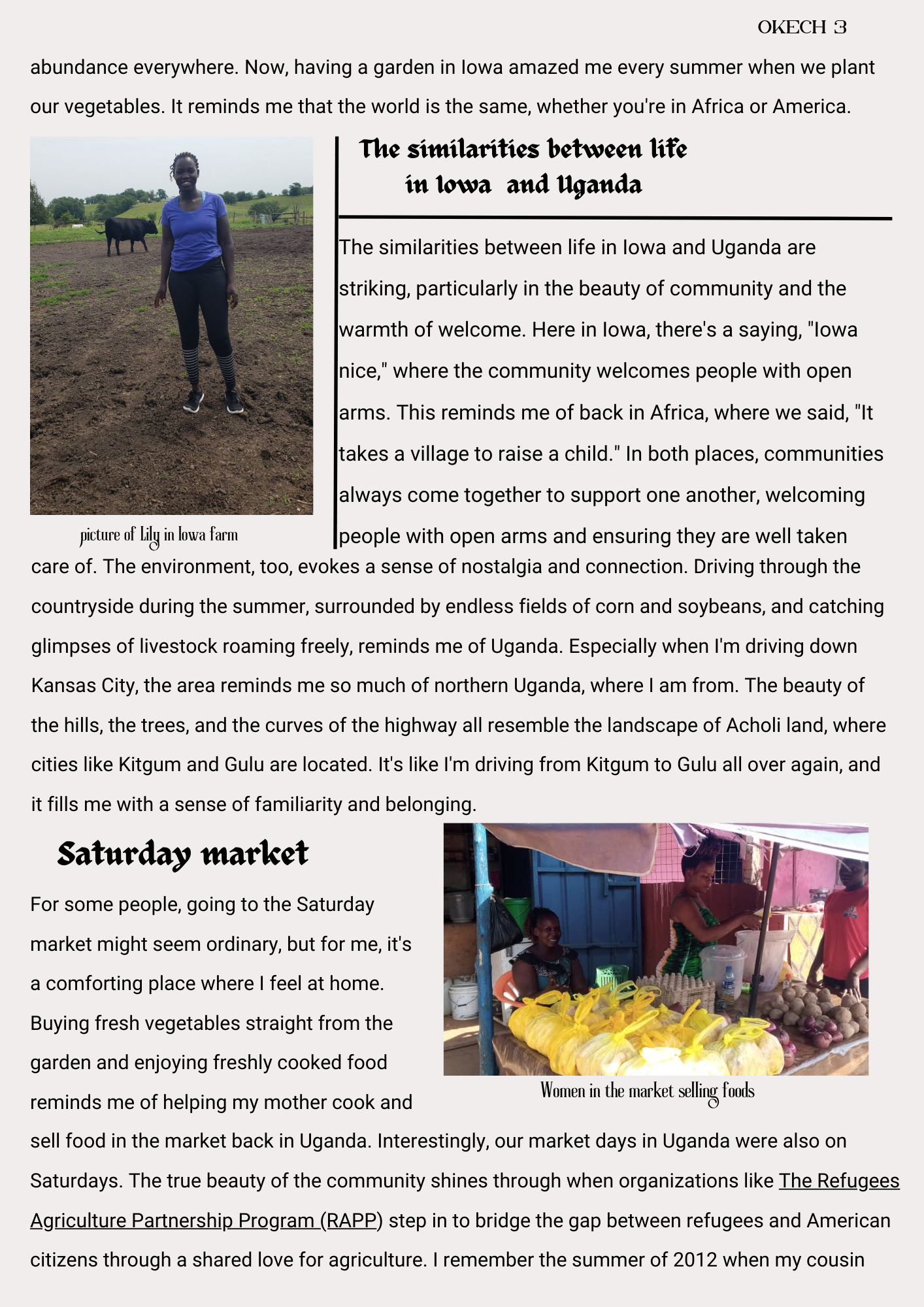
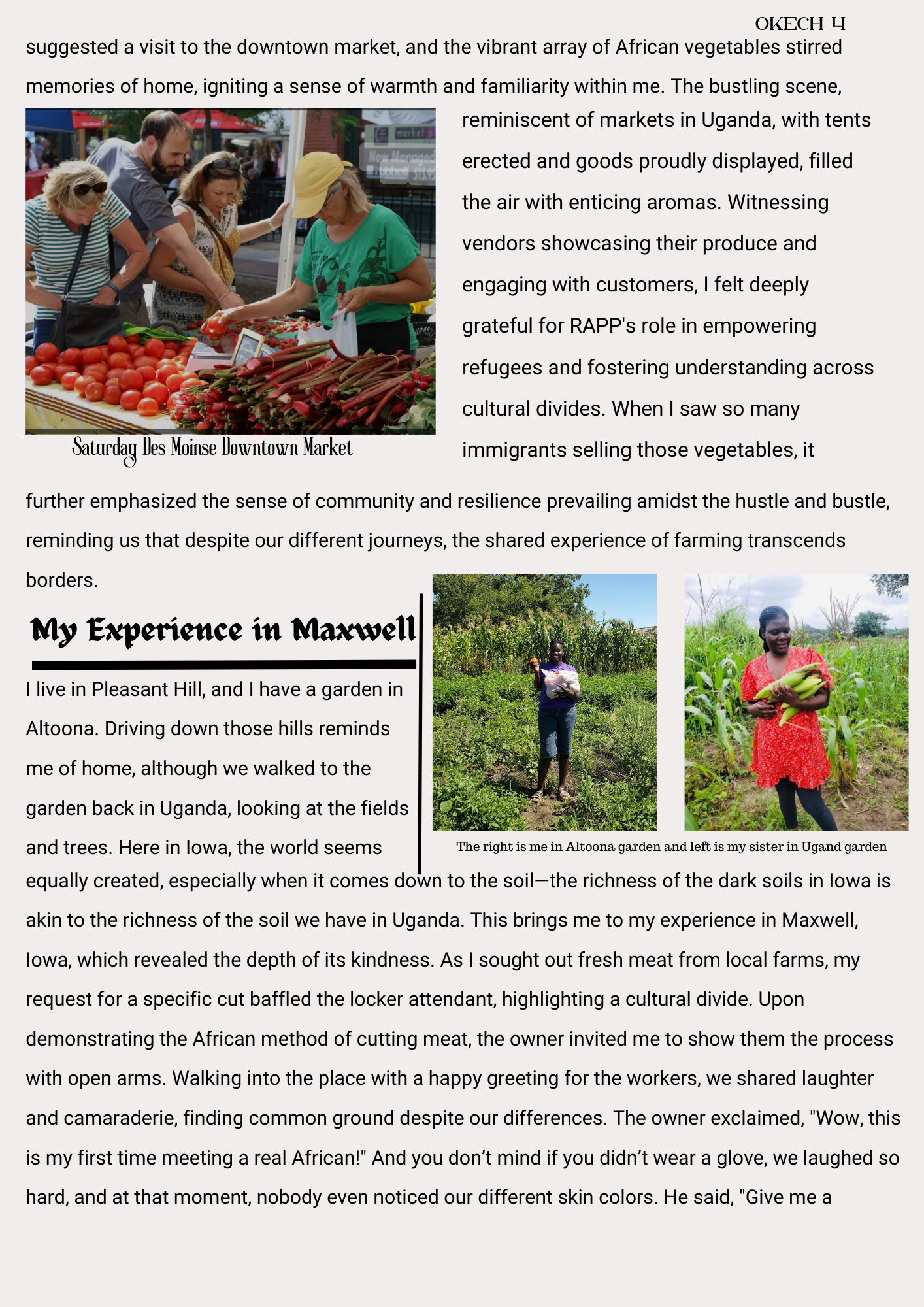
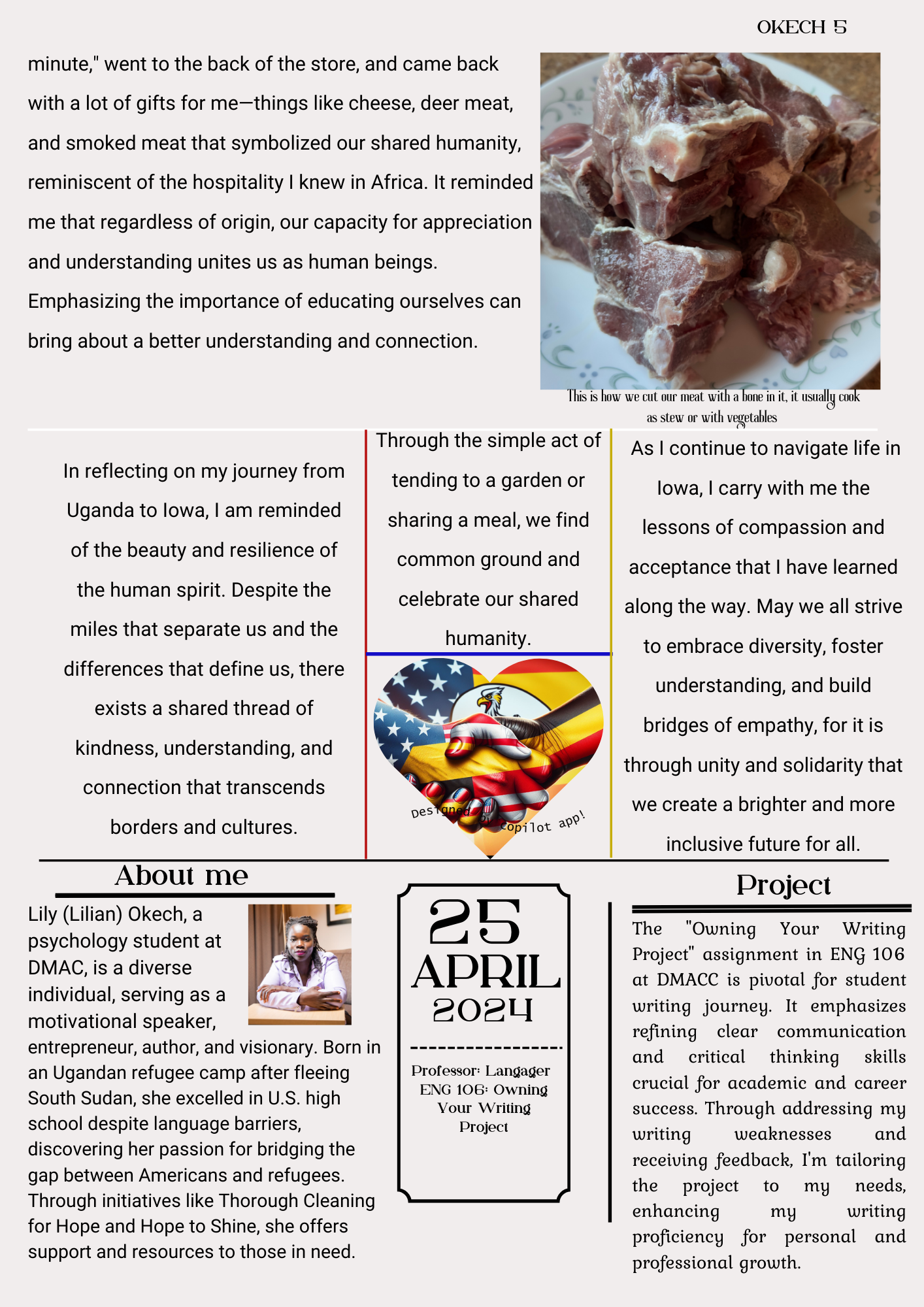

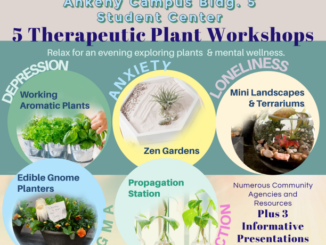
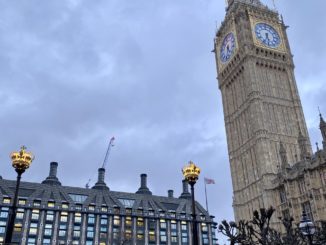
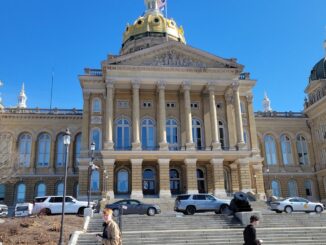
Be the first to comment